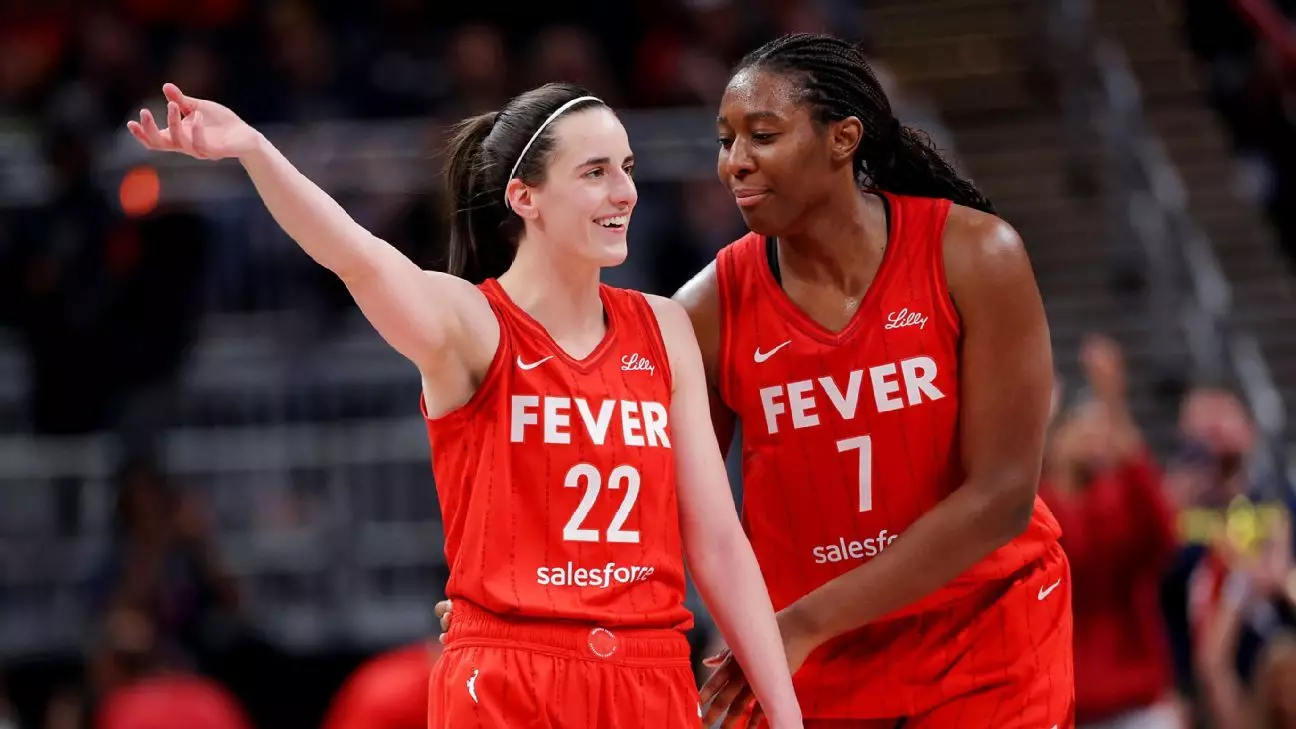The recent assembly of the WNBA All-Star rosters exposes the complex web of favoritism, strategic manipulation, and underlying political maneuvering that poisons what should be a celebration of talent. While the league proudly presents this event as a showcase of skill and camaraderie, the truth is that it is riddled with internal power plays, biased choices, and nuanced alliances that threaten the integrity of the game. The captains, Caitlin Clark and Napheesa Collier, ostensibly chosen by fan votes, reveal through their selections that popularity and strategic alliances often outweigh merit in a league where politics shadow athletic achievement.
What stands out most glaringly is the manner in which team strategies seemingly prioritize personal agendas over fairness. Clark’s decision to include prominent Fever teammates Aliyah Boston and Kelsey Mitchell—both of whom are talented but also clearly strategic choices—indicates a desire to reinforce regional loyalty and internal team chemistry rather than purely selecting the most deserving players. Meanwhile, Collier’s choices reflect a similar tendency to leverage existing relationships, with the inclusion of her former UConn and USA Basketball teammate Breanna Stewart, demonstrating that personal familiarity often weighs as heavily as on-court performance.
The Covert Power Play Through Coaching Switches
One of the most revealing aspects of this roster construction is how the coaching assignment was manipulated to serve ideological and competitive interests. Initially, Cheryl Reeve was assigned to guide Clark’s team, given her association with the Minnesota Lynx, which houses Collier and Collier’s coach. Yet, the seemingly innocent switch to Sandy Brondello’s team was a calculated move to consolidate coaching and player allegiances, reinforcing a fragile hierarchy where strategic loyalties influence gameplay more than pure merit.
This behind-the-scenes power play underscores a worrying trend: coaching placements are not always about strategic genius but are tools for political positioning within the league. Such moves undermine the foundational fairness of the game, turning what should be a celebration of talent into a battleground for influence and alliance-building. Players and coaches are merely pawns in a wider game of power distribution, where each move is calculated to reinforce existing hierarchies rather than elevate true merit.
The Mirage of Fan Influence and Talent Evaluation
While fan voting may appear as the ultimate voice in selecting All-Stars, it is increasingly clear that this process is susceptible to manipulation, favoritism, and regional biases that distort the true landscape of talent. The choices of Clark and Collier, for example, reflect not just individual reputation but also strategic positioning. Their selections send signals about team chemistry, political allegiances, and regional loyalties rather than pure individual talent.
This discrepancy raises an uncomfortable question: does the current system genuinely reward talent, or does it merely echo the league’s internal power dynamics? When decisions are influenced heavily by personal relationships and regional loyalty—rather than a transparent, objective assessment—the league risks eroding public trust and undermining the legitimacy of its star selections. The spectacle becomes less about showcasing the league’s best and more about reinforcing existing alliances.
The Hidden Politics of Player Trades and Player Choices
Despite initial talks of player trades among captains, the entire process was ultimately a carefully controlled exercise, illustrating that even the most seemingly simple exchanges are embedded in complex negotiations and hidden agendas. Clark’s attempt to swap Satou Sabally for Breanna Stewart, with Collier countering by demanding Aliyah Boston instead, is a clear example of how trade talks act as a battleground for influence rather than genuine concern for fairness.
This subtle power play demonstrates that player selections and trades are rarely about merit—more often, they are about consolidating influence, creating favorable voting narratives, or positioning certain teams and players to maximize league hierarchy. The nuanced negotiations reflect a broader culture of behind-the-scenes maneuvering that diminishes the spontaneous joy of a truly merit-based competition.
The Bigger Issue: A League Entrenched in Power, Not Progress
The WNBA’s All-Star showcase, while marketed as a celebration of talent, manifests the entrenched realities of favoritism, regional bias, and political influence that pervade the league’s higher echelons. As long as selections are influenced by internal alliances, coaching manipulations, and behind-the-scenes negotiations, the league’s credibility as a genuinely merit-based competition remains compromised.
This manipulation impacts not only the competitive spirit but also the broader perception of fairness and transparency. If fans, players, and critics see that success and recognition are dictated more by political savvy than athletic excellence, the essence of sportsmanship is eroded. The league, therefore, must confront these uncomfortable truths and strive for a system where talent and merit take precedence over influence and alliances, lest it continue to undermine the integrity it claims to uphold.


Leave a Reply